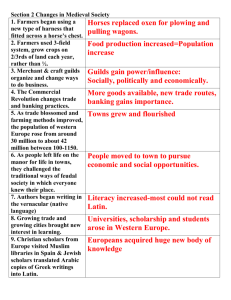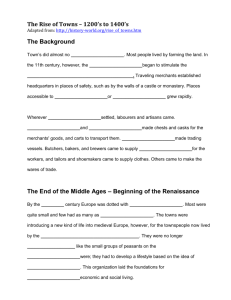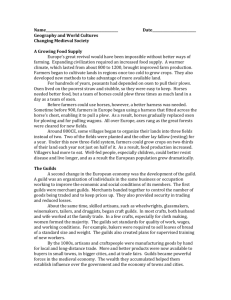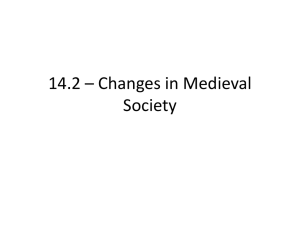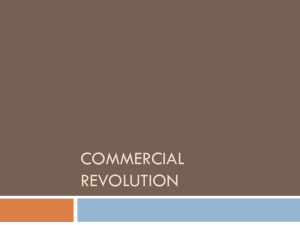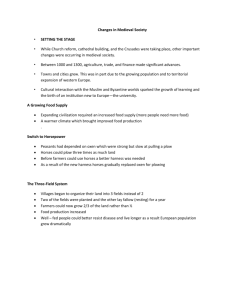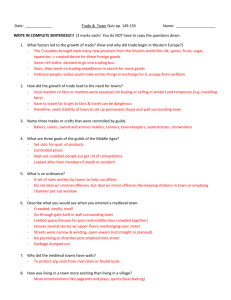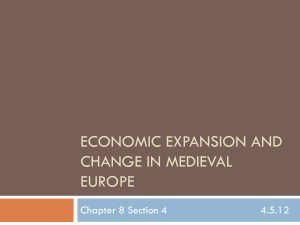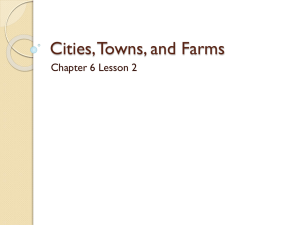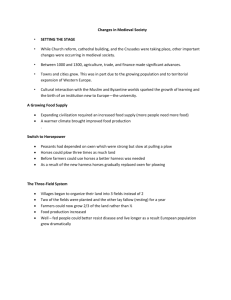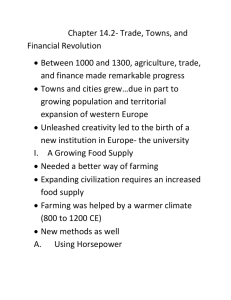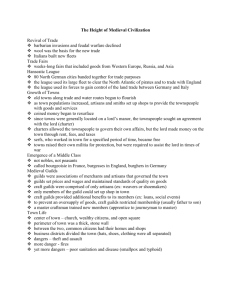112 Chapter 14 section 2 Changes in Medieval Society
advertisement
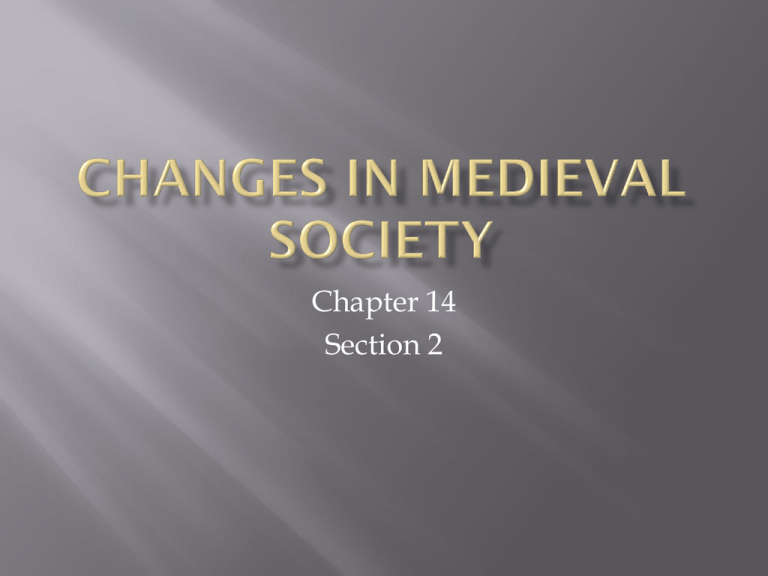
Chapter 14 Section 2 Three field system Guild Commercial Revolution Burgher Vernacular Thomas Aquinas Scholastics 800-1200 climate warmed Depended on oxen for plows Horses could do 3 times the work 900 farmers used a harness around the chest 800 AD three fields instead of two Two planted one fallowed Grow up to 2/3’s land each year Food production increased Children could better resist disease 2nd change in economy Guild- an organization of individuals in the same business or occupation working to improve economic and social conditions of its members Merchant guilds 1st Artisans, wheelwrights, tailors, winemakers began craft guilds Control number of goods Keep prices up Husbands and wives worked together More women in cloth guild Set quality and standard of work Set wages and working conditions Bakers required to sell loaves of certain size and quality Supervised training of new workers 1000’s merchants and artisans made goods for local and long distance trade Powerful force in medieval society More and better products Wealth helped establish influence over government and towns Was the expansion of trade and business Fairs and Trade Needed cash and credit to exchange goods Bills of exchange established exchange rates Letters of credit eliminated carrying cash Cloth, bacon leather, dyes, rope commonly traded Not everything was made on the manor Good from foreign lands Trade routes opened because of the Crusades Sell at a profit merchants reinvested the profits Traders needed large amounts of cash or credit Bills established exchange rates Letters of credit made trade easier Trading firms and associations offered these services Merchants looked for new markets Merchants purchased items from distant lands Church not allowed to charge interest (usury) Banking important business in Italy 1000-1150 population 30 to 40 million Towns grew and flourished Compare to Constantinople, European towns were unsophisticated Paris 60,000 people in 1200 Towns 1200 to 2500 people Changes had major affect on European lives Two important changes Involved what people did for a living and where they lived Towns attracted new workers Grew into cities Life changed from the manor Towns sprung up all over Living in town had its drawbacks Narrow streets Filled with animals Household and human waste in the street Little bathing Danger of fire Many serfs ran away If a serf lived for a year and a day in town they were free Had better lives in town Did not fit into social order Feudal lords ran early towns Burghers-merchant class town dwellers demanded privileges Freedom from tolls Right to govern town Muslim connection Christian scholars visited Muslim libraries Few Scholars knew Greek Jewish scholars translated Arabic and Greek into Latin Science, philosophy, mathematics, law Meant a group of scholars meeting People not buildings made up the university Paris and Bologna were first Oxford and Salerno Most students were sons of burghers Church or government job Bachelor's degree in Theology take 5 – 7 years Master of Theology 12 years Vernacular- everyday language Most writing had been in Latin Some are read today Dante’s Inferno Canterbury Tales Since most people could not read Latin, printed in the vernacular Christian scholars excited about Greek philosophy Thomas Aquinasargued most religious truths could be proved my logic Scholastics- scholars who met at the university called this or schoolmen Used knowledge of Aristotle to debate issues Teachings on law and government had an effect on those institutions today
